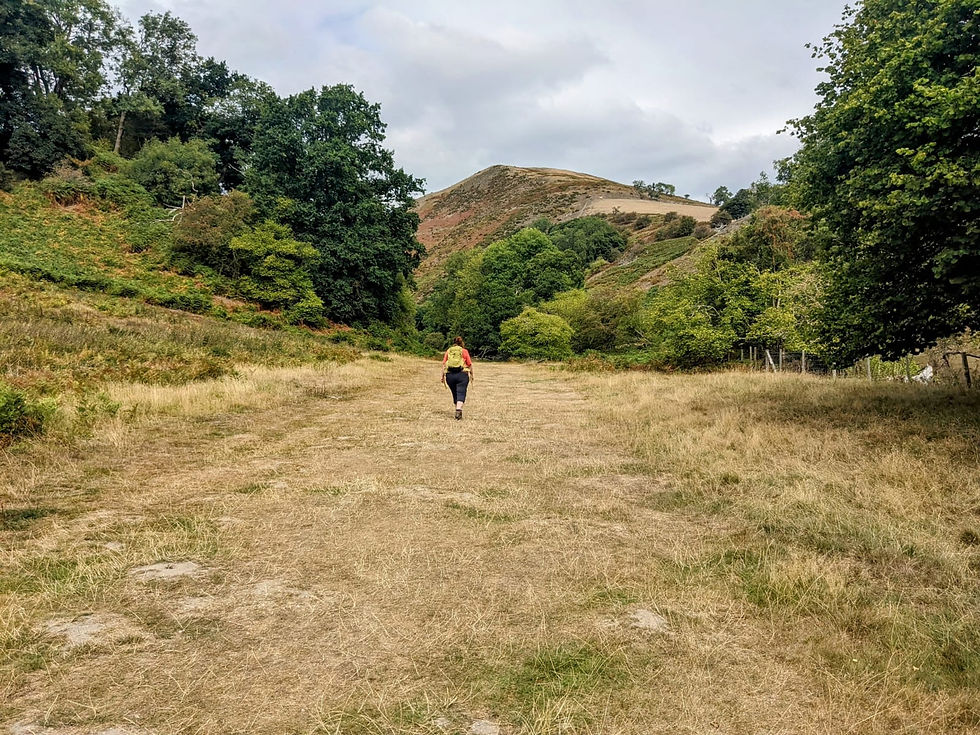Manging your time and energy: Nature's Way
- JK - Where The Mind Grows

- Mar 11, 2025
- 3 min read

We often view time as our most precious currency in the hustle of modern life.
Ever thought about expanding your perspective?
At Where the Mind Grows we love to learn (and share with you) inspiration from Nature.
Nature balances both time and energy with effortless wisdom, we too can adopt this dual-currency mindset.
Nature's Time-Energy Economy
Look at the epic oak tree. During winter, instead of rushing around trying to grow, it conserves energy for the spring abundance. The bear doesn't fight hibernation but embraces it as essential energy management. Neither apologises for these rhythms – they simply respect what their systems need.
Beyond the Clock: Your Energy Budget
We live in a culture that seems to meticulously track minutes and hours. Yet,. we rarely account for our energy expenditure. Energy is even more finite than time (I often joke with clients that despite our considered concerns about a constant lack of time, time is actually infinite) Perhaps energy is even more valuable.
Consider:
The "cheap" one-hour meeting that leaves you depleted might actually cost more than the three-hour deep work session that energises you
The "quick" social obligation that drains your reserves versus the "time-consuming" nature walk that fills you up.
The "efficient" multitasking that fragments your attention versus the "slower" single-focus work that creates flow and a deeper sense of purpose.
Nature offers brilliant models for managing our energy currency. if you are familiar with what we do at Where the Mind Grows, you’ll know how much I call on Nature through ‘biomimicry’ observing and adapting ourselves, designs and approaches based on nature's own ways.
Biomimicry for Better Balance
Inspiration to apply:
Seasonal Thinking: Deciduous trees shed leaves to conserve energy during resource-scarce periods; identify your personal seasons. When are your high-energy periods? Your natural rest cycles? Stop fighting your rhythms and start working with them.
Energy Return on Investment: The hummingbird expends tremendous energy only on nectar-rich flowers. Evaluate your commitments through this lens – which activities give you the highest energy return? Choose ways to prioritise this way.
Strategic Rest: Animals that need to hunt or forage for a livelihood don't apologise for resting after a hunt or sourcing. They understand that recovery is essential for future success. Build deliberate recovery periods into your schedule rather than pushing until collapse.
Community Collaboration: Wolf packs rotate duties, allowing collective achievement without individual exhaustion. Which responsibilities could you share or delegate rather than depleting yourself, in or out of work?

Applying this practically
Start tracking your energy alongside your time. Note or become aware of which activities energise versus deplete you. Imagine you have an "energy budget" that complements your time management system. Embrace your natural cycles rather than forcing productivity during low-energy periods.
Top Tip: This calls on you sensing in regularly and being adaptive. What might work one month or in a day cycle may not work so well another day because of complexities, or emotional processing or a change in dynamics. Instead of being frustrated that you can’t replicate an approach, consider how to ‘lean in’ to the energy you have on the day and make the most of that. (even if that’s more time for rest/replenishment strategies/activities).
Remember that managing energy isn't about avoiding effort – it's about a sense of intentional or strategic 'allocation' or choice. The salmon expends enormous energy swimming upstream, but only when the timing and purpose align with its highest priorities.
Moving through your day or accessing Nature can energise you and can contribute to time feeling more purposeful in the long run.
By adopting nature's dual-currency approach to resource management, we can create lives that feel not just productive but sustainable and aligned with our deepest values. After all, what good is saved time if we have no energy left to enjoy it?

Enjoyed this blog post?
Subscribe to my weekly newsletter to receive a note from Nature and a dose of wild inspiration each week. Tips, offers, strategies and resources for health, happiness and hope inspired by Nature.



Comments